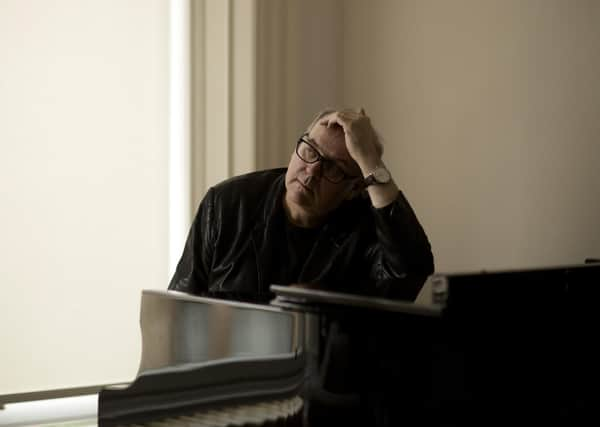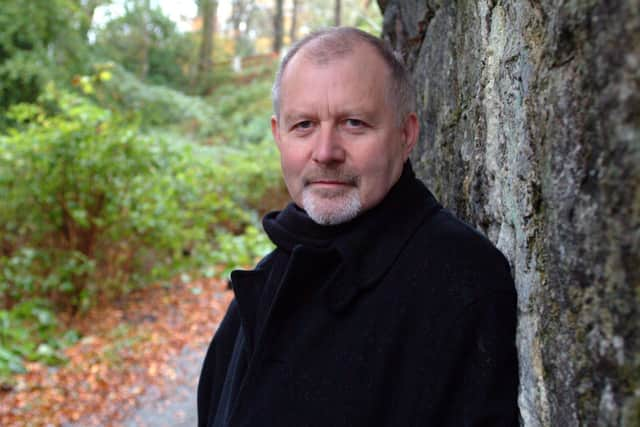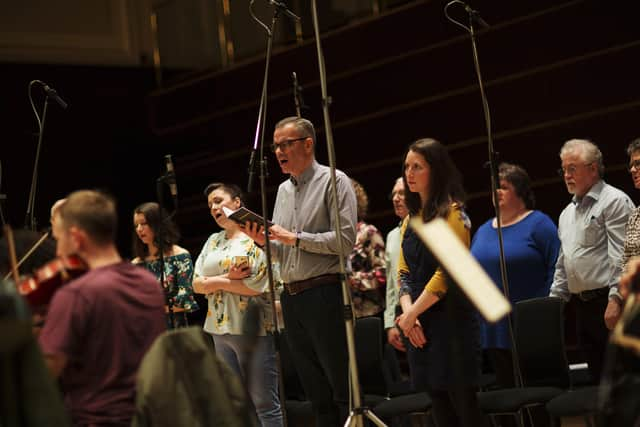Craig Armstrong: ‘It would be a terrible shame if Gaelic psalm singing died out’


His new album, however, brings him much closer to his Scottish roots. The Edge of the Sea is a collaboration with Calum Martin, an Isle of Lewis-based musician; it explores the tradition of Gaelic psalm singing.
Armstrong, 61, says the concept for the record grew from an encounter with Martin at the Celtic Connections festival in Glasgow in 2014. “Donald Shaw, the director of Celtic Connections, thought it would be a good idea for us to meet and perhaps talk about some sort of collaboration,” he says. “In that year I went up to Lewis to discuss ideas for a concert in Edinburgh Castle, that was the start of my journey trying to understand and analyse Gaelic psalm singing, although I had been aware of it most of my life.”
Advertisement
Hide AdAdvertisement
Hide AdThe composer had long been fascinated with the tradition after being exposed to it in childhood. “The first time I really heard Gaelic singing was when I was a boy,” he explains. “My mother’s mother and father came from Ross-shire and when we were there on holiday visiting them we would go to the church in Hilton, there they sang the Gaelic hymns. I must have been about nine or ten years old and even for a child it’s a bit of a shock hearing it, you wonder what’s happening.
“When I was 18 I went to the Royal Academy of Music in London to study classical composition and it always kept in the back of my head. There were some famous BBC recordings of psalm singing and I had them. In the last ten or 15 years you can hear it on the radio, it’s not a regular thing, but it’s not as obscure as it once was. When this opportunity arose with Calum I thought it would be great to explore it.”
Martin is an authority on the tradition and they based their first collaboration on the psalm Martyrdom, which was first performed with the Scottish Ensemble. “It’s quite unusual to have an accompaniment to psalm singing,” Armstrong says. “Usually there’s nothing apart from the congregation singing. You have to be quite respectful of the tradition.
“Really before I even started writing anything I wanted to get into the nuts and bolts of how psalm singing worked, which is an interesting thing because although in a sense everybody sings the melody they’re not actually singing it at the same tempo. Also what’s happening is everybody is adding their own grace notes, almost like playing the bagpipes, so you have this wave effect. It sounds quite complicated but essentially everybody’s singing the same thing but just not at the same time.
Advertisement
Hide AdAdvertisement
Hide Ad“Also when they sing it the individuals are not sticking to the same tempo either, they will compress it and then they’ll slow down then they’ll go faster. Even if you’ve got ten people singing it has this interesting sound that’s totally unique. For the people doing it, it’s something that’s learnt from childhood, it’s something that’s not taught.”


One of the reasons why Martin is keen to uphold the tradition, Armstrong explains, is because “as church congregations get older there’s a good chance it will die out”. He adds: “This record’s a little part of that, trying to let people hear it who have never heard it. Calum does workshops where even if you’re not a member of the church you can go and learn how to sing the psalms in the Gaelic tradition. It would be a terrible shame if it died out with the congregation.”
Armstrong dedicated the second piece, Ballantyne, to his late father, John. It features Duncan Chisholm, one of the leading figures in traditional Highlands fiddle playing, and was inspired by the Lewis landscape. “My father was a very religious man, he was an elder in church. He went back to college when he was 65 to become a lay preacher, which was really impressive,” Armstrong says. “Calum wrote the melody. It features in three of the movements, the rest are interpretations of the landscape.
“I think psalm singing is very rooted in the landscape of the Western Isles. In fact Calum Iain Macleod, the precentor, lives in a church in Lewis which is perched right by the ocean. From the church you can see the horizon of the ocean. Also what’s happening within the sound of Gaelic psalm singing it’s almost like the murmuration of birds where it’s slowly fading in and out.
Advertisement
Hide AdAdvertisement
Hide Ad“On the first piece we did at Edinburgh Castle we worked with the artists Dalziel and Scullion, they created films for the piece, and they’ve also created visual work for this record. They’re fantastic artists who are based in Dundee.”


In the past 20 years Craig Armstrong has worked on films such as Romeo + Juliet, The Quiet American and The Incredible Hulk. His latest work is for the Disney movie The One and Only Ivan.
His numerous awards include a Grammy, Baftas, Ivor Novellos and an OBE. “It’s interesting with the film thing,” he says. “In the start it was a way to make a living but then when I started working with artists like Baz Luhrmann and Oliver Stone it wasn’t so clear cut as that because these were very artistic projects; it also influenced the writing in my own records. This year I did the Mrs Lowry & Son film and the Disney film then that gives place for a project that’s non-funded in a way. You think, ‘what would I really like to do?’
“I think if you get an interesting film project, like with Baz when I did things like Moulin Rouge and The Great Gatsby, these were amazing experiences. Also doing projects like that frees you up to do things like for instance The Edge of The Sea. Roughly that’s how I’ve been working in the last ten years, I’d do a film and then make a record on my own.”
Advertisement
Hide AdAdvertisement
Hide AdIn the mid-1980s, Armstrong worked with Midge Ure and a decade later, he teamed up with Massive Attack for their album Protection. His first two solo albums were released on Massive Attack’s label, Melankolik, and he retains a lasting respect for pop music. “A great pop record can be a great piece of art,” he says. “From my childhood there were all these incredible bands like The Beatles and the Beach Boys. I think as you get older I wouldn’t say I play pop music any more but, like a lot of people, I go back to the classics like Joni Mitchell and Neil Young. I was also a big fan when I was younger of West Coast jazz, like Chet Baker. In my 20s when I was in London the ECM label became a huge influence, and interestingly enough, Christian [Kellersmann] who runs Modern Recordings also worked at ECM; when he started this new label one of his big missions was to create an interesting home for diverse music. If anything, that shows how small a world it is.”
The Edge of the Sea is out now on Modern Recordings. craigarmstrong.com
Comment Guidelines
National World encourages reader discussion on our stories. User feedback, insights and back-and-forth exchanges add a rich layer of context to reporting. Please review our Community Guidelines before commenting.